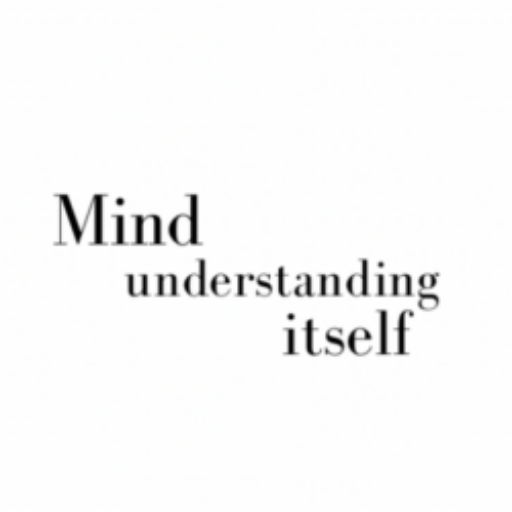Cognitive Distortions and How to Overcome Them
Cognitive distortions is a concept from cognitive behavioral therapy, which implies that we usually tend to think in some biased way.
Normally, having cognitive distortions is neither a deficit nor a disorder, but it is just a by-product of how our brains work.
Our brains are programmed in such a way that when it tries to understand a situation, it goes with the simplest explanation; when it tries to work out a problem, it goes with the fastest solution. The reason is that the time is the most valuable, and this is understandable when you think about the importance of survival.
You see a rod on the road, and jump, and then think: “Snake!”. You think you thought, and jump, but that was just your brain protecting you.
This is because your brain believes that the best way to keep the body alive is to take the shortcut, to categorize, to label…
However, we don’t live in the woods anymore like our ancestors used to, and although cognitive distortions are not always a problem, there are situations where cognitive distortions are at the root of psychological symptoms. Additionally, most of the time they are the cause of negative automatic thoughts. This is why it is important to have a closer look at them.
Here, I summarize the most common cognitive distortions, and share ideas and CBT techniques to overcome them:
1. Overgeneralization
In this type of cognitive distortion, we tend to come to a general conclusion based on little evidence, sometimes based on a single event. The person generally makes future predictions, considering a past experience.
Sarah received 40/100 on the first calculus midterm. She thinks:
“I will fail this course.”
“I suck at maths.”
“I will never be successful at college.”
How to Overcome Overgeneralization
Realize the Distortion
Asking yourself:
Is it possible that I’m overgeneralizing?
Look for the Alternatives
Asking yourself:
Are there any other possible future scenarios?
Is it possible that I will have better grades on the other midterms?
Does this really mean that I suck at maths?
Have I ever had any similar experience in which I wasn’t feeling very successful at something at the beginning, but then I got better?
Find a More Objective Explanation of the Situation
“It is possible that I can get better grades in the future. This doesn’t mean that I suck at maths, it just means that I didn’t get the grade I expected on the first midterm only. One midterm grade can’t define my math skills…”
Focus on What You can Do/Change
“…Furthermore, even if my grade is not as good as I expected right now, it can improve. Instead of focusing on this thought that is not helping me at all, I can focus on the ways I can improve my grade. “
2. Labeling
In labeling, we tend to label either ourselves or others in a negative way based on little evidence.
For example:
Chris found out that he made some mistakes on the midterm due to not reading every single answer choice in the test. He thinks “I’m an idiot.”
Joanna saw her neighbour on the street the other day, and said “Hello.” The neighbour said “Hello.”, and walked away. She thinks “She is frosty.”
How to Overcome Labeling
Realize the Distortion
Asking yourself:
Is it possible that I’m labeling myself?
Is it possible that I’m labeling him/her?
Look for the Alternatives
Asking yourself:
Is it possible that there is another explanation to her behavior?
Even if she is frosty, what is wrong with that? Why shouldn’t she be frosty?
Find a More Objective Explanation of the Situation
“I expected to have a conversation with her this morning, but when she walked away, I didn’t have the chance. Maybe she was in hurry. Maybe something else… Maybe she is not comfortable with having conversations with people, this is a possibility too. But why would this be a bad thing? People are the way they are. Our definition of them doesn’t define them. In addition, I have such an experience with her only once. How can I be so sure of my definition of her based on so little evidence? How would it be if my neighbour thought the same way about me? I think it would be unfair…”
Focus on What You can Do/Change
“…If I’d really like to have a conversation with her, why don’t I invite her for a cup of coffee?”
3. Black and White Thinking
This type of cognitive distortion is also called all-or-nothing thinking because here, we tend to see things as all-or-none, as right or wrong, as good or bad. Nothing else is allowed in the middle. There are no shades of gray, most of the time, there isn’t even gray. Black and white thinking generally goes along with labeling.
Let’s consider some examples:
“I am selfish.”
“He never listens to me.”
“I don’t know how to raise a child. I am a bad mother.”
How to Overcome Black and White Thinking
Realize the Distortion
Asking yourself:
Is it possible that I see things as black and white?
Look for the Alternatives
Asking yourself:
Are there any shades of gray?
Is it possible that he sometimes listens to me? Don’t I have any memories of him listening to me?
Is what I’m believing 100% true? Am I really a bad mother 100%?
Find the Middle Ground
“There happens times when he listens to me. “
“It is not 100% true that I don’t know how to raise a child. I am having these thoughts because I care about being a good mother. I may not know everything about raising a child, and who does or who says that I have to? Additionaly, I have learned a lot since I have her. I am trying my best. I am improving…”
Focus on What You can Do/Change
“…Thus, instead of focusing on this thought “I’m a bad mother.”, I can focus on the things I am good at as a mother, and if still there are things I wish to get better at, I can focus on finding ways in order to achieve them.”
4. Personalization
In personalization, we tend to believe that we are responsible from every problem, every unexpected situation, every mistake. For example:
Kelly is having coffee with his boyfriend. She thinks he seems quiet today, and tells to herself: “It is because of me. I hurt him with what I said this morning.”. Meanwhile Kelly’s boyfriend is thinking about a problem at work.
How to Overcome Personalization
Realize the Distortion
Asking yourself:
Is it possible that I’m personalizing?
Look for the Alternatives
Asking yourself:
Am I sure that he is quiet?
Are there any other possible reasons why he seems quiet this morning?
What else or whom else might have contributed to this situation?
Is it possible that he is thinking about work?
Is it possible that he is worried about his midterms?
Find a More Objective Explanation of the Situation
“I might be personalizing. He might be thinking about his finals,or maybe he didn’t sleep well last night. This doesn’t have to be about me. In fact, I have just realized that I must be believing the thought “he shouldn’t be quiet while having coffee with me.” Is this true?…”
Focus on What You can Do
“…It is not true that “he shouldn’t be quiet while having coffee with me, but I’d like to chat with him. If I’d like to talk to him, why don’t I just start a conversation?”
5. Emotional Reasoning
In emotional reasoning, we tend to make assumptions about reality based on our feelings. For example:
“I feel guilty. I must have done something wrong.”
“I feel sad. Something must be bothering me subconsciously.”
“I feel terrible whenever I think about my thesis. I don’t wanna work on it now. Maybe tomorrow.”
How to Overcome Emotional Reasoning
Realize the Distortion
Asking yourself:
How do I feel right now? Is it possible that I’m making assumptions about the reality based on how I feel?
Look for the Alternatives
Is it possible that there is another reason I’m feeling this way?
Is it possible that there is no explanation to this feeling?
Is it possible that I act differently even though I’m feeling this way?
Is it possible that I feel an emotion and not act on it? Did I ever have such an experience before?
Find a More Objective Explanation of the Situation
“I might be feeling guilty out of nowhere. I might be feeling guilty just because my brain is used to feeling this way. I remember my therapist mentioned this before that guilt feelings are very common in OCD. I already know that I have a tendency to feel guilty, and I know that sometimes I feel guilty for things that others won’t feel guilty about. In addition, the fact that I feel guilty, doesn’t mean that I’m guilty. My therapist also mentioned that feelings happen, we can’t control them, but we can only control our behavior. I remember that evening I wasn’t feeling so well, and I didn’t want to go out with friends, but Diane convinced me, and then when I did go out with them, I had a great time…”
Focus on What You can Do/Change
“…I can’t control how I feel. I can only control how I act.”
6. Filtering
In filtering, we ignore the positives in a situation and tend to focus on someting negative even if it is a very little part of the situation.
For example:
Having realized some spelling mistakes on her report, Clara starts to think that she had submitted a sloppy paper and, now the professor will think that she is careless.
How to Overcome Filtering
Realize the Distortion
Asking yourself:
Is it possible that I’m focusing on the negatives?
Look for the Alternatives
Asking yourself:
Isn’t there any positive aspects of this situation?
Is it true that I submitted a sloppy paper?
How can I be so sure that my professor will think I’m carelees? Is it possible that he won’t realize my spelling mistakes? Is it possible that even if he realizes he won’t care?
Find a More Objective Explanation of the Situation
“It is not true that I submitted a sloppy paper. The reason why I have these thoughts is because I care about submitting a good paper. I worked a lot for this project, and I did my best. I might have some mistakes, but it doesn’t define the whole paper. In addition, the professor may not even realize the spelling mistakes. Even if he realizes there is a possibility that he won’t care. So even if there is a possibility of the disaster, doesn’t help me in any way, thinking about it, and blaming myself… “
Focus on What You can Do
“…I can focus on the good sides of the paper, and the fact that I submitted my term project!”
7. Jumping to Conclusions
In this type of cognitive distortion, we tend to believe that we know what others feel, or why they act in a certain way, which is also called mind-reading. Similarly, we make these assumptions about situations also where we believe that we know what will happen next that is also called fortune-telling. For example:
Kelly‘s boyfriend didn’t answer any of her calls this morning. She thinks:
“Will he break up with me?”
How to Overcome Jumping to Conclusions
Realize the Distortion
Asking yourself:
Is it possible that I’m jumping into a conclusion?
Look for the Alternatives
Is it possible that there is another reason why he didn’t answer my calls? He is working, sleeping, studying, playing video games?
Anything similar to this happened before? What happened then?
Find a More Objective Explanation of the Situation
“Although there is a possibility that he may want to break up with me, this may not be the reason why he is not answering my calls. There are many other possible reasons. I am having these thoughts because I want him in my life. However, thinking about the possibility of a breakup all the time makes me nervous in my relationship with him, and this harms our relationship rather than helping it…”
Focus on What You can Do/Change
“…Is there anything I can do in this situation then? Maybe I can focus on working on this thought “What happens if he breaks up with me?”, and try to understand my fears about the possibility of a breakup. “
8. Magnification or Minimization
In magnification, tend to magnify our own negative attributes, while minimizing others’ negative attributes; and also, we tend to minimize our own positive attributes while maximizing others’.
For example:
Jennifer was in the kitchen, cooking dinner. All of a sudden the phone rang, and she answered. It was her friend, Claire. They started to chat. She forgot the dinner on the stove. Jennifer found out that her dinner was burned. She told herself:
“I am not good at anything.”
“Claire would never let this happen, she is so good at everything.”
How to Overcome Magnification and Minimization
Realize the Distortion
Asking yourself:
Is it true that I’m not good that anything? Is it true that Claire is good at everything?
Does burning the food mean that I’m not good at cooking?
Is it possible that I’m maximazing my bad qualities while minimizing others’ bad qualities?
Is it possible that I’m minimizing my good qualities while maximizing others’ good qualities?
Look for the Alternatives
Asking yourself:
Is there any other explanation to this situation?
What else or whom else might have contributed to this situation? (that the dinner burned)
Find the Middle Ground
“The fact that food is burned has nothing to do with how well I’m at cooking, or that Claire is good at everything. Furthermore, I can’t know if she would burn the dinner or not. I must be thinking this probably because I spent so much time making the dinner, and that I’m really hungry, and I would love to have that spaghetti now! However, focusing on this thought that “I’m not good at anything, but Claire is good at everything”, doesn’t help me relieve my hunger…”
Focus on What You can Do
“…What can I do? What can I do? Do I have anything else to eat? Can I cook something else?”
9. Making “Should/Must/…” Statements
In this type of thinking, we tend to critisize ourselves believing that we should be/ must be doing something. When we cannot meet our own shoulds, we start to feel dissappointed in ourselves or guilty. This also applies when we believe others should be doing something, and when others cannot meet our shoulds, we generally feel dissappointed in them or angry. For example,
About oneself:
“Why am I not happy? I should be happy, I have everything I need. What is wrong with me?”
“I shouldn’t get angry.”
“I should always be kind.”
“I have to clean the whole house before I go to bed.”
“I must have a boyfriend, I am the only one among my friends who doesn’t have a boyfriend.”
About others:
“He should be more loving.”
“She should have arrived on time.”
“My son shouldn’t spend the whole holiday playing video games.”
“My daughter must clean her room.”
How to Overcome Making “Should/Must…” Statements
Realize the Distortion
Asking yourself:
Is it possible that I’m making a “should” statement?
Should he act in this way, really?
I should be happy. Should I? Really?
Look for the Alternatives
Asking yourself:
Maybe my son SHOULD BE playing video games?
Is it possible that there is nothing wrong with “not feeling happy when you have it all”?
Find a More Objective Explanation of the Situation
“Believing the thought “I should be happy”, I am making a should statement. I must admit that believing this thought makes me even unhappier. The fact is that I don’t HAVE TO feel any particular feeling. I can’t control my feelings, they just happen. They come and go. Questioning why they are there, or why they are not there, doesn’t help me with anything. It actually makes me dissappointed in myself…”
Focus on What You can Do/Change
“…I can’t control how I feel. I can only control how I act.”
It can be difficult to realize one’s own cognitive distortions, especially at the beginning. Although, once we find out our common cognitive distortions, it gets easier to identify them every time.
If you need help with finding out the cognitive distortions in a thought, you can share it with me via direct messaging or at the comments section.
If you are interested in learning more about how to overcome cognitive distortions and how to challenge automatic thoughts, you can also see our post: “How to Challenge Automatic Thoughts”.
Thank you very much for reading.
References
Burns, D. D. (2012). Feeling good: The new mood therapy. New York: New American Library.
Cognitive Distortions: When Your Brain Lies to You. (Sep, 2017). Retrieved July 22, 2018 from www.positivepsychologyprogram.com/cognitive-distortions/
10 Cognitive Distortions Sabotaging Your Brain, Retrieved July 22 from https://iqdoodle.com/cognitive-distortions/








6 Comments